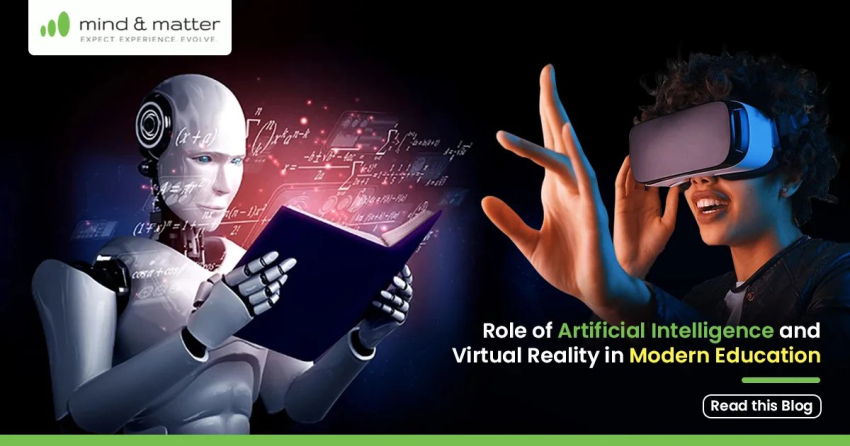Role of Artificial Intelligence and Virtual Reality in Modern Education
The integration of Artificial Intelligence (AI) and Virtual Reality (VR) in the education sector is heralding a new era of interactive and personalized learning. As we delve into the trends of 2023, it’s evident that these technologies are not just enhancing the learning experience but are also addressing some of the longstanding challenges in education. Let’s explore the evolving landscape of EdTech with a focus on AI and VR.
Artificial Intelligence in Education: A Game-Changer
1. Customized Learning Experiences: AI’s most significant impact in education is its ability to personalize learning. Systems like DreamBox Learning and Carnegie Learning use AI to adapt to each student’s learning style and pace. This approach has shown to improve engagement and understanding, especially in subjects like mathematics and language arts.
2. Efficient Assessment Systems: Tools like Gradescope and Turnitin use AI to automate grading, significantly reducing the workload for teachers. They also provide valuable feedback to students, allowing for quicker improvements.
3. Enhancing Language Learning: AI-powered language learning apps like Duolingo offer personalized, interactive, and accessible ways to learn new languages. Their speech recognition technology helps in improving pronunciation, a critical aspect of language learning.
4. Predictive Analytics in Education: AI systems can analyze student performance data to predict future learning outcomes and identify potential learning gaps. This is incredibly useful for early intervention and tailored support.
Virtual Reality in Education: Immersive and Interactive Learning
1. Realistic Simulations: In medical education, VR simulations like those offered by Osso VR and ImmersiveTouch are used for surgical training, providing a safe and controlled environment for students to practice and hone their skills.
2. Virtual Field Trips: Google Expeditions and Nearpod offer virtual field trips, allowing students to explore everything from the Great Barrier Reef to Mars in a 3D environment. These experiences can significantly enhance understanding and retention of complex subjects.
3. Interactive Historical and Cultural Education: VR can recreate historical events or sites, offering students a ‘time-travel’ experience. This immersive form of learning brings history and culture to life, providing a deeper understanding than traditional textbooks.
4. STEM Education: VR can simplify complex scientific concepts through interactive 3D models and simulations. For example, the Unimersiv app allows students to explore the human body in 3D, making anatomy lessons more engaging and comprehensive.
Future Trends and Ongoing Challenges
1. Democratizing Access: A major challenge remains the accessibility of AI and VR technologies, especially in under-resourced schools. Initiatives like HP’s VR Classroom aim to address this by providing affordable VR solutions.
2. Ethical and Privacy Considerations: With AI’s data-driven approach, safeguarding student privacy and ethical use of data is crucial. Ongoing discussions and regulations are shaping the responsible use of AI in education.
3. Professional Development for Educators: Teachers need to be equipped with the skills to integrate these technologies into their teaching. Continuous professional development and support systems are essential for this transition.
4. Blending Traditional and Tech-based Teaching: Finding the optimal blend of conventional teaching methods and innovative technological approaches is key to maximizing the benefits of AI and VR in education.
Conclusion
The roles of AI and VR in education are multifaceted and evolving. They offer opportunities for more personalized, engaging, and effective learning experiences. As we progress through 2023, the focus is on harnessing these technologies to overcome educational challenges while ensuring equitable access, ethical usage, and the upskilling of educators. The potential of AI and VR in reshaping the educational landscape is immense, promising a future where learning is more adaptive, immersive, and accessible to all.

Suman Shaw
Hello, I'm Suman Shaw, currently fortunate enough to be a part of the team at Mind and Matter. Thank you for tuning in to explore more intellectually stimulating content. Don't forget to follow for more enlightening discussions and content.



